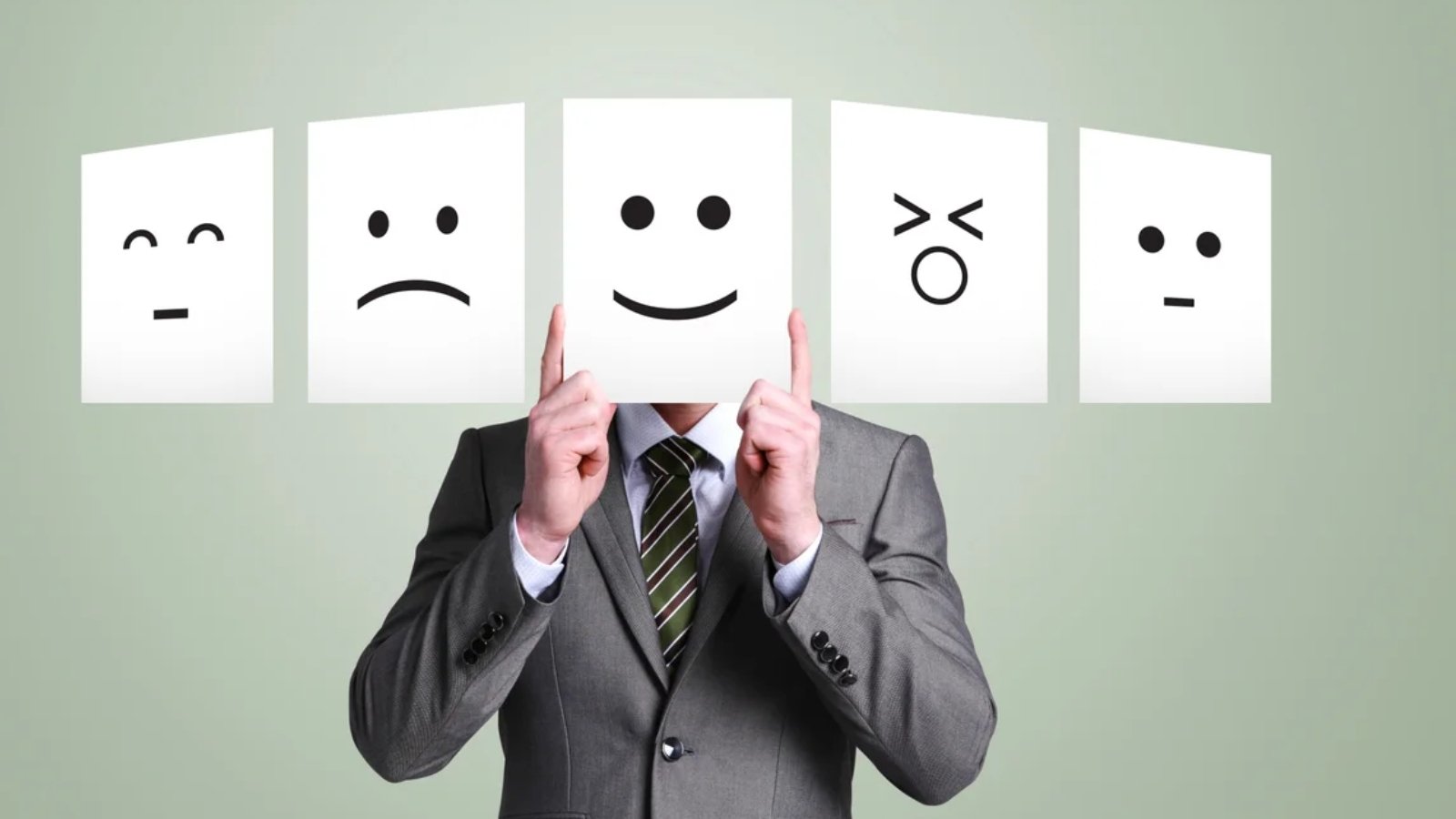This shows that people's understanding of the outside world was fundamentally wrong. Can our understanding of the inner world - that is, of minds, and in particular, of emotions -also be wrong?
Some common ways of thinking about emotions suggest that our current perceptions of them may have a similar problem.
Many emotion theorists - including psychologists, neuroscientists, and philosophers - use the term "emotion" to refer to mental states others believe are not emotions. While some of these theorists strongly believe that there is a small set of “core” emotions, this distinctive state is sometimes given within and outside academic circles - to what seems to fall outside the general category of emotions.
Continuing with these thoughts suggests that many people think they know what emotions are but don't actually know.
If you ask someone to explain emotion, they will often start with a few examples, listing mental states such as happiness, sadness, anger, and fear, hoping you will get a general idea. The above is a sensible way of understanding the routine of everyday life, but for scientific purposes, there is a need for more precision.
Emotion theorists study the causes and consequences of emotions and their relationship to different aspects of the mind; they must be able to explain what makes an emotion a feeling and not just another state of mind.
However, the theorists of emotions - especially psychologists - do not just disagree about what emotions are. On the one hand, they even fail to address it, although the emotion researcher Agnes Moors provides a contrarian example.
For example, in his seminal book, The Emotions, the Dutch psychologist Nico Frijda argued that one couldn't begin to define a concept from anything; instead, any definition must be based on a theory, but then on what can one question a theory?
We don't seem to get much help from an American psychological association called the Dictionary of Psychology, which defines emotion as “a complex pattern of interaction involving experimental, behavioral, and physiological elements through which an individual attempts to deal with a subject or event that is personally significant.” The above is a very broad definition.
Some conditions, such as thirst and pain - which one can compulsively call “emotions” - serve this definition, and all kinds of reactions - from eating a meal to scratching a skin area - involve experimental, behavioral, and physiological elements. One cannot experience an emotion about something when one is actually indifferent to it, which is what it means to say that emotions are subject to "positive or negative" evaluation.
Since emotion theorists have not yet agreed on what emotions are, it is unsurprising that different theorists have different criteria for what can be considered a “basic” emotion - that particular, supposed category of emotions thought to be ingrained in the culture.
The most common criteria are based on questionable claims about facial expressions of emotions and/or on various evolutionary considerations.
The arbitrariness of the criteria gives rise to varying numbers of suggested basic emotions. However, the general idea that there are basic emotions remains influential among emotion theorists, as well as in the popular press and in other areas where emotions are important, such as human-computer interaction.

Based on the work of American psychologist Paul Ekman and his colleagues in the 1970s, the most preferred assumption is that there are six basic emotions: happiness, sadness, anger, fear, disgust, and surprise, although over the years, Ekman himself has expanded his list of basic emotions.
We can say that the prevalence of adherence to a suspicious idea of basic emotions will not cause problems only when we ask the question of what emotions are. Logically, anything representing a primary emotion must be classified as an emotion, but , as we will see, even this little expectation is likely to fail.
When we define a concept as “emotions,” we generally need several conditions to apply to something to fall under this concept. Hence, the difficulty of defining an emotion lies in the difficulty of defining all the conditions necessary for something to be classified as an emotion.
However, the fact that it is difficult to determine what emotions are does not justify ignoring the question. One should at least be able to agree and specify some, but not necessarily all, of the necessary conditions.
Consider the definition of emotion from Random House Unabridged Dictionary Online 2021: “An effective state of consciousness in which joy, sadness, fear, hatred, and the like are experienced as distinct from the cognitive and volitional states of consciousness.”
For emotions to be said to be an influential state, it must be understood that they are evaluated intrinsically. That is, they are necessarily positive or negative. This is the reason behind the exclusion of cognitive and volitional states.
Mental states are related to things we know or believe in, for example, confusion and attention. In contrast, volitional states include things we are generally motivated to do, such as hunger.
The aforementioned dictionary does better than many emotional theorists in conveying that emotions are influential and conscious.
As shown earlier in recent research, a strong argument can be made that emotions are necessary:
- Evaluable "positively or negatively."
- It revolves around something. For example, it has a purpose.
- Be aware of these situations.
If one is in the midst of an emotional state, then one necessarily feels satisfied or harmful, or perhaps - as in the case of nostalgia - feels both, but one can't feel satisfied or bad.
No one can experience emotion about something when they are indifferent to it; this is what it means to say that emotions are influential or subject to positive or negative evaluation.
It must adhere to the condition that emotions revolve around something to distinguish them from general influential situations such as moods. If we wake up one day in a good mood, that mood is positively influential, which is not about anything in particular.
Moods can best be perceived as general affective states, unlike specific emotional states, which tend to reach mood-compatible emotional states.

We're not saying we're in a bad mood because of a flat tire, though we may often experience a bad mood due to flat tires when accompanied by other discomforts.
So, the mood itself is not directed at anything. For example, the emotion of anger we easily feel when we are in a bad mood must be directed at something. When we are angry, it is caused by what someone has done or by the occurrence of an event.
As mentioned, we are conscious of emotions in some cases. Still, some psychologists have discussed the possibility of unconscious emotions. Still, such arguments can be encountered because, to name a few, their proponents point to general positive or negative states, as opposed to particular emotions such as anger or pride, which they claim can explain changes in behavior.
To be sure, indeterminate emotion can inevitably influence one's subconscious behavior and judgment; take subliminal advertising, for example, but that is an unconscious influence in its content, not an unconscious “specific” emotion.
Surprise is one of the most dubious elements of Ekman's original six primary emotions, and there are plenty of reasons to assume that surprise isn't an emotion.
For example, surprise violates our first condition that emotions are necessarily assessable, and surprise may sometimes be appreciated, but in reality, there is no need for that.
You will likely be surprised and indifferent at the same time. For example, when someone knows that the whole of China has one timeline, it may be surprising and may be interesting. It is likely to be emotional for some people, but most of us are emotionally indifferent to the subject.
Surprise, at its core, cannot be evaluated. Until it becomes positive or negative, we describe it with words like “pleasant” or “unpleasant.” These words seem to serve an emotional purpose. Surprise is an epistemological condition - relating to the things we know or believe - and is just one example of a so-called primary emotion whose condition is questionable about its classification as an emotion; interest, acceptance, and desire are other examples.
Talking about “basic emotions” doesn't make sense if some supposed cases aren't even emotions.
Compare the above to emotions, such as satisfaction, embarrassment, or anxiety. Suppose you are in one of those emotional states. In that case, the condition that involves categorizing the feeling necessarily requires that you are either in a positive state "relative to satisfaction" or a negative state "relative to embarrassment and anxiety." You cannot be in one of the two situations and be indifferent simultaneously.
At the same time, the second condition -your emotions have to revolve around something - means your relief has to revolve around something, such as a negative medical test, your embarrassment has to revolve around something, a comment you made, and your anxiety has to revolve around something, such as the possibility that you're late for an appointment.
The third condition - being aware of these situations - means that you can't currently be in one of these situations without being aware of it; you can't be in pain and not be aware of it.
Importantly, the problem of definition is not the only one plaguing emotion research. For example, the bias toward English culture leads to an unwarranted reliance on constantly recurring English words, which come to mind easily. This makes the corresponding emotions seem essential and perhaps even fundamental, while the concepts of these emotions may be less psychologically crucial in other cultures and languages.
Moreover, emotions are often seen as fixed entities waiting to be released when the time comes, a view that is consistent with, if not even implicit in, the basic idea of emotions. But emotions are more flexible, such as thoughts; they emerge as conscious experiences resulting from often unconscious mental processes as we interact with what is happening around us.
What should we understand from all these issues combined? The answer is that we should probably not readily accept uncritical claims, such as those that say six basic emotions are not well founded. We could instead adopt a more flexible view, perhaps such as those that have suggested that emotions are mental “constructs” -that is, that they arise from mental activity in the same way that thoughts do.
When people in the late 18th century slowly began to accept the fact that the four elements - water, fire, air, and soil - were not the final constituents of matter, they could not yet conceive of artificial tissue, semiconductors, or nuclear power.
We are often late in seeing the potential benefits of getting the science right, so even a more realistic understanding of emotions is helpful in psychotherapy, human-machine interaction, or security surveillance techniques. For instance, we must still aspire to the right science, even if that is the end itself.
At the same time, the average person is entitled to feel confused in a “cognitive state” and disappointed in an “emotional state” because those who spend their lives studying such an essential aspect of daily life are not better understood by them.






Add comment